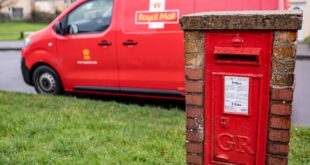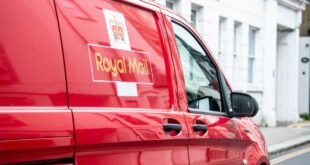- The Crown Estate is still looking to build on its impressive green energy portfolio
Profit from the Royal Family’s land and property holdings more than doubled to a record £1.1billion thanks to a boost from offshore wind, as the King’s eco drive will see the State Bentleys and helicopters run on bio-fuel.
Earnings surged by £658million last year due to the Crown Estate owning most of Britain’s seabed stretching up to 12 nautical miles from the mainland.
It is leased out to wind farm operators and a spike in firms reserving a patch to eventually build turbines on drove a huge uplift in profits.
The Crown Estate has more than 11 gigawatts of generating capacity across 36 offshore wind farms, but is preparing to add another 20 to 30 gigawatts by 2030.
Chief executive Dan Labbad said the ‘record results’ stem from ‘years of commitment and investment’ in the sector. Meanwhile, the King has continued his eco-drive since taking to the throne with the two State Bentleys set to be refurbished so they can run on bio-fuel.
King Charles’ (pictured right on July 17) eco drive has helped see earning surge this year

Profit from the royal family’s land and property holdings more than doubled to a record £1.1 billion last year, driven by a short-term boost from offshore wind farms

An aerial view of Windsor Castle and the surrounding area at Windsor Castle on July 17, 2021

The King’s eco drive will see the State Bentleys and helicopters run on bio-fuel
This is an ‘interim measure’ as the Palace ‘begin discussions around the next generation of State vehicles being fully electrified’. A spokesman said they are yet to decide on the make of electric cars.
The Crown is also replacing two helicopters, with the King insisting on models that can run on the maximum amount of renewable fuel.
In place of 15-year-old Sikorksy S-76s the Palace is purchasing two AgustaWestland AW139s, which can use 50 per cent sustainable aviation fuel (SAF).
The Palace has installed a temporary SAF tank at RAF Odiham in Hampshire as the royals push to use the fuel more widely.
There have also been moves to make the estate more green with solar panels fitted to the roof of Windsor Castle as part of recent refurbishment work.
Sir Michael Stevens, Keeper of the Privy Purse, said: ‘Out went the leaking lead roof and in came the castle’s first solar panels – just one of a number of environmental initiatives driven by a determination to place sustainability at the heart of our operations and inspired by His Majesty’s leadership in this sphere.’

The Palace is also purchasing two AgustaWestland AW139s (pictured, file) which can use 50 per cent sustainable aviation fuel

Windsor castle (pictured, file) has also been fitted with solar panels as part of the eco drive

The Crown Estate said earnings surged by more than £658mn during the year ending March 31, from £443mn the previous year
Gas lanterns at Buckingham Palace are also being repurposed with specially-designed electrical fittings to improve their energy efficiency while preserving their historic look and glow. The lamps were also switched off to save costs during the recent energy crisis.
King Charles appointed a new head of sustainability in 2023 to accelerate progress in reducing the royals’ carbon footprint, resulting in a decrease of 3 per cent in natural gas and heating emissions across the Royal Estate.
But total greenhouse gas emissions did increase fractionally from the previous year, with a spokesman putting this down to ‘increased business travel emissions’.
Source link


